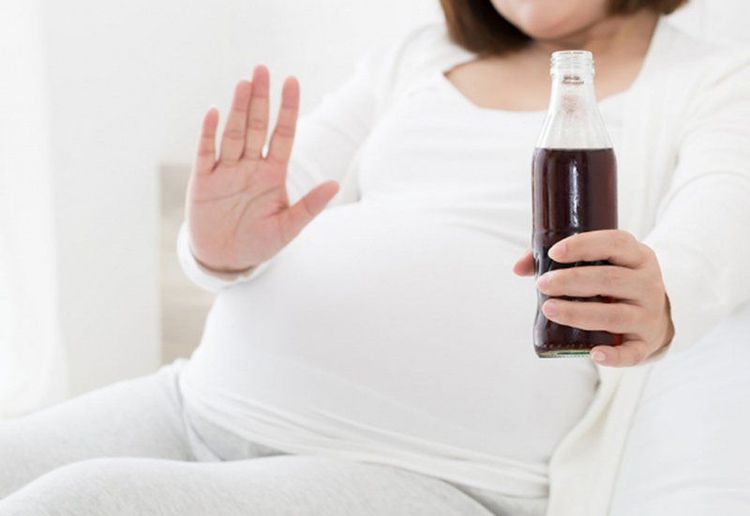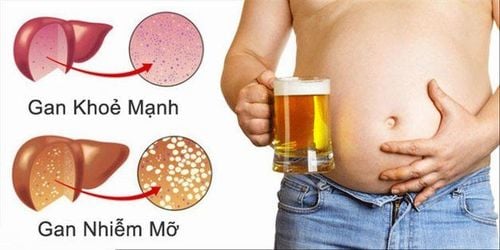According to medical experts, pregnant women should limit their daily caffeine intake to no more than 200 mg. A single can of Coca-Cola contains approximately 32–42 mg of caffeine. Similarly, other soft drinks may also contain varying levels of caffeine, which is why Coca-Cola and similar beverages are generally not recommended during pregnancy.
1. Is it Safe to Drink Coca-Cola During Pregnancy?
Occasional consumption of soft drinks can minimize potential adverse effects. However, many pregnant women are concerned about Coca-Cola's caffeine content, which is believed to be harmful to fetal health. Additionally, some studies suggest that the high sugar levels in Coca-Cola may increase the risk of premaure birth. However, this connection has not been definitively proven or supported by conclusive evidence.
Nutritionists advise pregnant women to restrict caffeine intake to under 200 mg per day to ensure the safety of both the mother and the developing fetus. On average, carbonated soft drinks available in the market contain 35–55 mg of caffeine per serving. Besides beverages, certain foods, such as chocolate, also contain caffeine. Therefore, it is recommended to limit foods and drinks containing caffeine during pregnancy and breastfeeding.
Trắc nghiệm: Mẹ bầu nên làm gì khi bị thiếu ối?
Nước ối đóng vai trò quan trọng trong sự tồn tại và phát triển của thai nhi. Trường hợp lượng ối quá ít (thiểu ối) thì sẽ tiềm ẩn những nguy cơ như gây thiểu sản phổi, chèn ép dây rốn,... Trả lời các câu hỏi trắc nghiệm sau sẽ giúp bạn có những cách phòng ngừa và điều trị kịp thời.The following content is prepared under supervision of Thạc sĩ, Bác sĩ y khoa, Tạ Quốc Bản , Sản phụ khoa , Khoa Sản phụ khoa - Bệnh viện Đa khoa Vinmec Phú Quốc
When purchasing products from the supermarket, the nutritional information on the packaging can help consumers identify caffeine-free and nutrient-rich alternatives suitable for fetal development.
Pregnant women are often encouraged to drink plenty of water to ensure proper hydration and maintain adequate levels of amniotic fluid. Additionally, freshly prepared juices and smoothies are excellent choices as they provide essential vitamins and minerals, promoting overall health and improving hydration.
2. How Much Coca-Cola Is Safe to Consume During Pregnancy?
Healthcare professionals typically recommend avoiding soft drinks entirely during pregnancy or replacing them with more nutritious beverages. However, for women who find it difficult to abstain completely, guidelines can help minimize potential risks.

Consuming less than 200 mg of caffeine per day is generally considered safe and reduces the potential negative effects of Coca-Cola. It is also essential to distinguish between regular Coca-Cola and diet variants. Diet Coca-Cola often contains about 10 mg more caffeine than regular Coca-Cola.
Coca-Cola contains added sugars, which provide empty calories and can increase appetite, raising the risk of gestational diabetes and obesity in expectant mothers. Excessive sugar consumption can also lead to unhealthy weight gain in both mother and baby, posing complications during childbirth.
In some studies, researchers have identified an increased risk of congenital abnormalities in fetuses when maternal dietary habits are unhealthy. Experiments with laboratory animals have demonstrated that soft drinks may impact levels of artificial sweeteners, such as aspartame. While consuming Coca-Cola during pregnancy is not inherently harmful in small amounts, most physicians still discourage its use. Women unable to quit entirely should aim to drink minimal amounts to reduce potential risks.
Most caffeine-containing products should be avoided or minimized during pregnancy. If total caffeine consumption remains under 200 mg per day, the risk to maternal and fetal health is relatively low.
Doctors typically recommend against Coca-Cola consumption during pregnancy. If consumed at all, it should be in minimal amounts. Excessive intake of Coca-Cola, even for non-pregnant individuals, can contribute to obesity and negatively affect cardiovascular health. Therefore, pregnant women should carefully evaluate the risks of Coca-Cola consumption to avoid long-term consequences for fetal development.
During pregnancy and breastfeeding, women are encouraged to prioritize healthy, nutrient-dense foods to support their own well-being and the development of their babies. Routine prenatal checkups are essential to monitor fetal growth and identify any potential complications.
To safeguard maternal and fetal health throughout pregnancy, Vinmec International General Hospital offers a comprehensive maternity care package. This service includes regular prenatal examinations with obstetricians, essential screenings, and timely interventions in the event of abnormalities.
Maintaining a healthy lifestyle, combined with access to high-quality medical services, ensures a safe and healthy pregnancy while fostering optimal fetal development.
To arrange an appointment, please call HOTLINE or make your reservation directly HERE. You may also download the MyVinmec app to schedule appointments faster and manage your reservations more conveniently.
Reference source: coca-cola.co.uk - babycenter.com - parents.com














